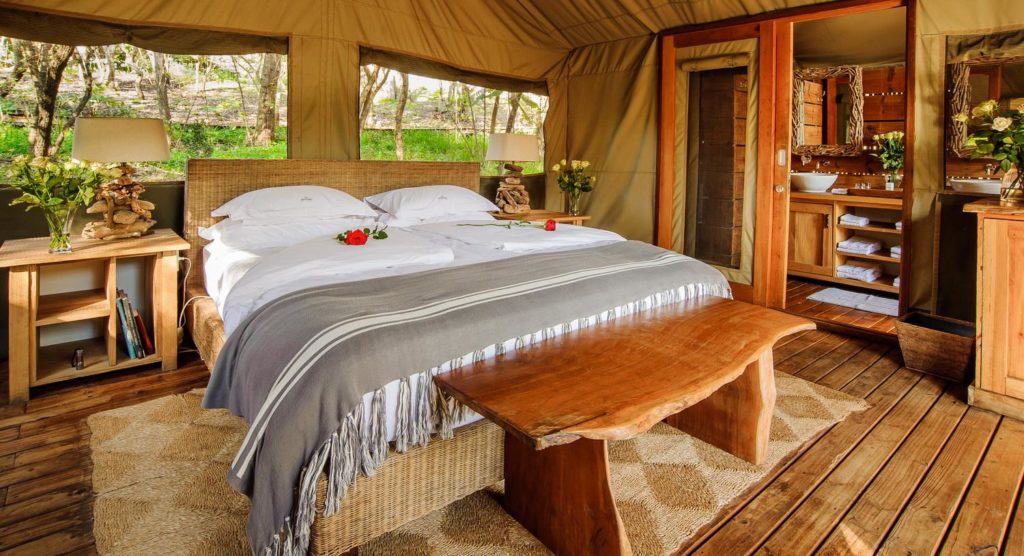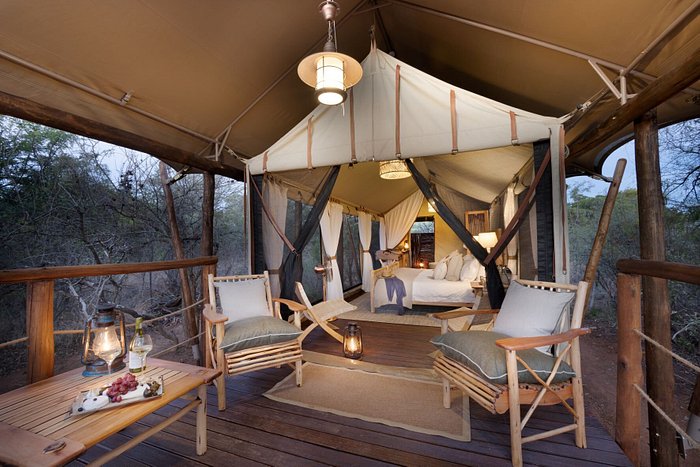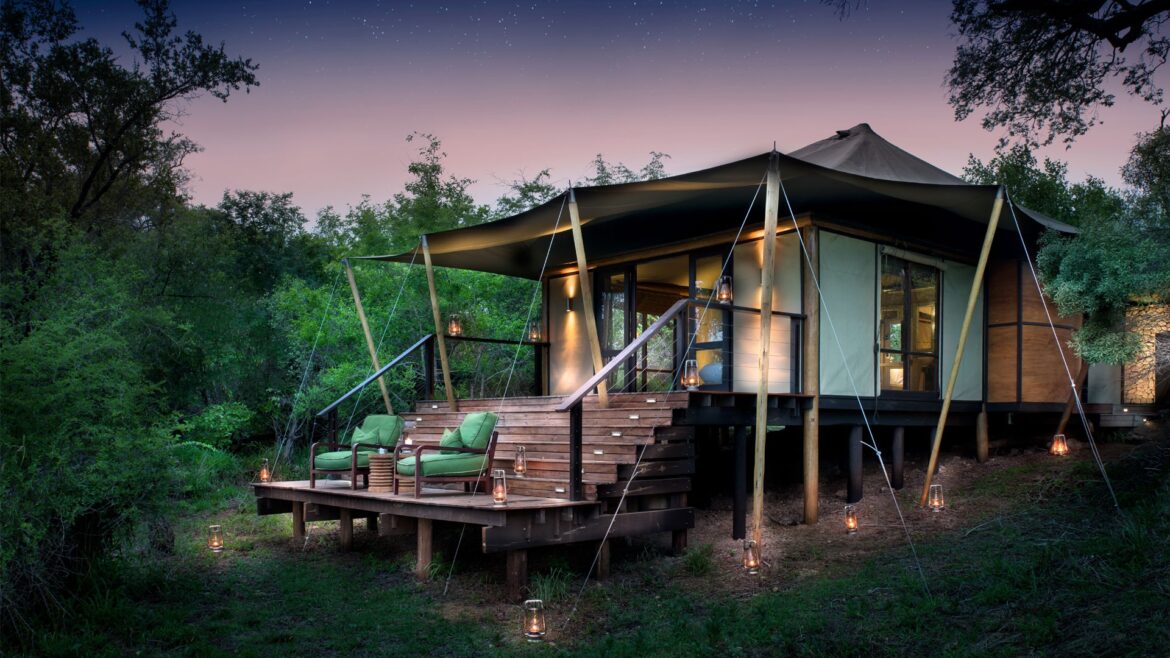Africa is a mystical continent, one that holds untold secrets, not only in the animal kingdom, but in the ecosystems as well.
Among the most popular tourist attractions and activities on this continent is the African safari adventure – an opportunity to observe the majestic wildlife in their natural habitat.
One of the key aspects of these safaris is the unique experience of staying in tented camps. However, the question on many adventurers’ minds is: “How safe are these safari tented camps?”
This article will delve into that topic to assuage any fears and help you prepare for an incredible journey.
What Are Safari Tented Camps?
Before we even explore the safety aspects, it is important to understand what safari tented camps are. Unlike what the name may suggest, these are not ordinary camping tents.
Safari tented camps, sometimes referred to as luxury tented camps, are high-quality, durable structures designed to provide comfort while ensuring an immersive experience of the wilderness. These are generally equipped with comfortable beds, en-suite bathrooms, and sometimes even amenities like Wi-Fi and air conditioning.
The distinctive feature of a tented safari camp (versus a safari lodge) is that tented safari camps feature rooms with canvas walls (as opposed to concrete walls). They are generally located deeper into the wilderness and, because there is less physical separation between you and the bush, they create a sense of closer connection to the wilderness.

Safari tented camps were initiated in Kenya around the 1920s and ’30s. But the concept has now spread to cover most of Africa’s wildlife areas. Back then, they were basic, temporary and mobile structures that were erected in one location for a few days. Today, safari tented camps are more elaborate, luxurious and mostly permanent with all the comfort you might wish for.

Tented safari camps range from very comfortable to exceptionally elegant and stylish.
Tented camps are usually in private concessions, so you’re able to enjoy the full range of ‘private’ safari offerings: bush walks with experienced rangers (probably one of the most intimate ways to connect with nature), game drives that include off-road and night game drives.
The whole idea and concept of safari tented camps is to create a balance between safety and the experience of being close to nature. The tent walls and the canvas roofs give you the feeling of camping, but with the security and comfort of a hotel room. Some tented camps even provide private decks or verandas, allowing guests to peacefully observe the surrounding wildlife.
Ensuring Safety in Safari Tented Camps
When it comes to safety in the safari tented camps, there are several layers to consider: wildlife encounters, health issues, and physical security.
Safari Camp Safety from Wild Animals
The primary concern about safety in safari tented camps usually revolves around the close encounters with wildlife. After all, you are in their territory. However, camp operators take this factor very seriously. Camps are often situated in strategic locations that provide great views of wildlife but are not directly in common animal routes.
Moreover, tented camps are typically surrounded by a secure perimeter. This could be a natural barrier like a river, an electric fence, or trained guards who keep an eye out for any potentially dangerous animals. Even without fences, the staff are well-trained in managing wildlife and ensuring they don’t enter the campsites.
At night, most camps implement safety protocols like escorting guests to their tents to ensure no unexpected wildlife encounters. Remember, they want you to enjoy your stay, not be in constant fear. Still, it’s crucial to adhere to the rules and guidelines provided by the camp staff.
Your Health Safety in Safari Camps
In terms of health, tented camps are very aware of the potential risks and take several precautions. Food and water are appropriately handled and stored to avoid contamination. Many camps have on-site chefs who prepare meals with fresh, local ingredients, following strict hygiene practices.
Most camps are equipped with first aid facilities and have an action plan for medical emergencies. This often includes connections with local hospitals or clinics. Regarding concerns like malaria, many tents come with pre-installed mosquito nets and camps can be found in areas with lower mosquito populations. It’s also recommended to get necessary vaccinations and take anti-malaria medication based on the advice from health professionals before you travel.
Physical Security & Safety in Tented Safari Camps
Concerning physical security, safari tented camps provide safety lockers or safes for your valuables. Camp staff are also usually around 24/7 to address any concerns. Moreover, reputable operators conduct background checks on their staff to ensure a safe and secure environment for guests.
Choosing A Safe Safari Tented Camp
There’s no one-size-fits-all solution, as the safety of safari tented camps can depend on various factors like the location, the management, and the specific safety measures in place. It’s advisable to do thorough research before choosing a camp.
Look for camps with positive reviews, particularly noting any mention of their safety measures. Booking your trip through a reliable tour operator can also add an additional layer of security, as they usually have a vetting process for the camps they partner with.
Take Away
The concept of safari tented camps is indeed a thrilling one, offering a unique blend of adventure and luxury. While there are inherent risks involved when you’re immersed in nature, it’s important to remember that safety is a priority for camp operators. Through strategic camp locations, safety protocols, health precautions, and security measures, they strive to provide a secure environment for guests.
As with any travel experience, there’s a degree of responsibility on you as well. Following the guidelines provided by the camp staff, respecting the wildlife, and taking necessary health precautions can go a long way in ensuring a safe and enjoyable safari adventure. After all, an African safari is not just a vacation, but a life-changing experience that brings you face-to-face with the untamed beauty of nature.

